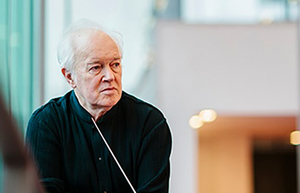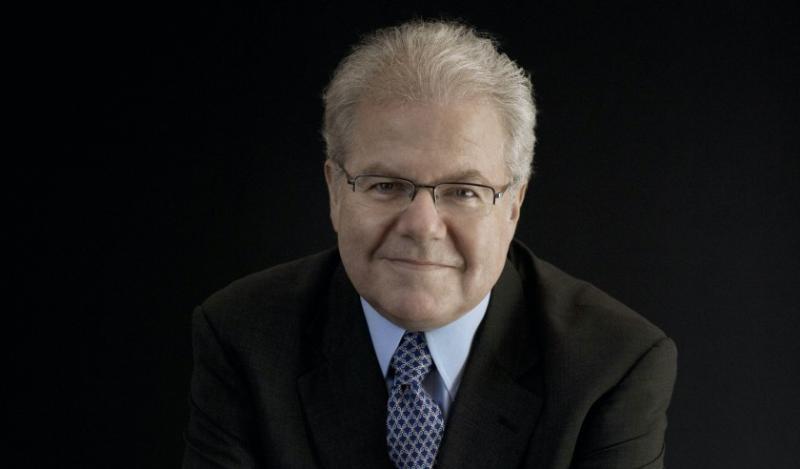Review: SAN DIEGO SYMPHONY: EDO DE WAART CONDUCTS BEETHOVEN at The Jacobs Music Center

Wondering how to celebrate Beethoven's 250th birthday? Well, to paraphrase Julie Andrews, the air is alive with the sound of his music. Take a European riverboat cruise that promises performances of his string quartets, stream Immortal Beloved with Gary Oldman's intensely romantic portrayal of the gnarly uncompromising genius, or just buy tickets for the next all-Beethoven concert at your favorite concert hall, probably next weekend given the enthusiasm for the anniversary shown by most symphony orchestras. The San Diego Symphony, for one, is all-in with a "Beethoven Festival." A dozen concerts will feature at least one Beethoven work this season, perhaps too much of a good thing.
Edo de Waart, recently appointed Principal Guest Conductor, chose the Leonore Overture No. 3, the 1st piano concerto and the 4th symphony for the first all-Beethoven program. Beethoven's only opera began life as Leonore. After many revisions, and three overtures with the original name, the opera, with yet a fourth overture, finally achieved modest success as Fidelio. Today Fidelio is seldom performed outside of Germany, but the third "Leonore" overture has become a concert-hall favorite. De Waart's interpretation was straightforward with good attention to detail, clear textures and well managed dynamics. The latter quality is especially important because of the overture's frequent mood changes, stormy to pastoral to heroic and back around. The strings were impressive, lush in slower passages, fleet and sure even in a notoriously difficult section of rapidly rising scales. Bird-like solos by Principal Flute Rose Lombardo and offstage trumpet calls by Trumpeter Ray Nowak were outstanding.
Beethoven wrote a fourth overture because he came to believe the power of the third made the quiet opening act seem anticlimactic. For all of this performance's strengths, it didn't quite make the most of the overture's potentially hair-raising power and passion.
The San Diego Symphony has had a string of impressive young virtuoso piano soloists in recent years. Emanuel Ax, now in his early 70s, can still hold his own with any

of them. He sailed through the 1st concerto's many difficult runs with exquisite clarity. It was fascinating to watch his fingers on an overhead screen as they scampered accurately up and down the keyboard. And his technique was matched by deft communication of the music's shifting emotions, from quiet contemplation to rousing speed and power. Smaller string, woodwind and brass sections facilitated as perfect a balance between piano and orchestra as I've heard at the Jacobs Music Center. Principal Clarinet Sheryl Renk's duet with the pianist in the beautiful middle movement was yet another example of how dependable the San Diego Symphony's principals are when in the spotlight.
After three curtain calls, Ax returned for a tender and graceful version of Robert Schumann Fantasiestücke (Fantasy Pieces), Opus 12, No. 1.
The relatively neglected 4th symphony is the largely friendly respite between inventive giants, the powerful "Eroica" and the intensely driven 5th. The latter is probably the most often played and recorded of any symphony. Yet, as demonstrated by Edo de Waart and the San Diego Symphony orchestra, the 4th has its share of Beethoven's genius, and an easy-going charm not often heard in his other symphonies. De Waart brought out the lively good humor of the first and third movements, and the beauty of the second. An energetic reading of the moderately stormy and more "Beethoven-like" final movement was a satisfying conclusion to a concert honoring one of the greatest composers who ever lived.
This review is of a January 11th performance. The Beethoven Festival runs through January 25, 2020. For season schedule and ticket information visit the San Diego Symphony website.
Photos compliments San Diego Symphony.
Videos
